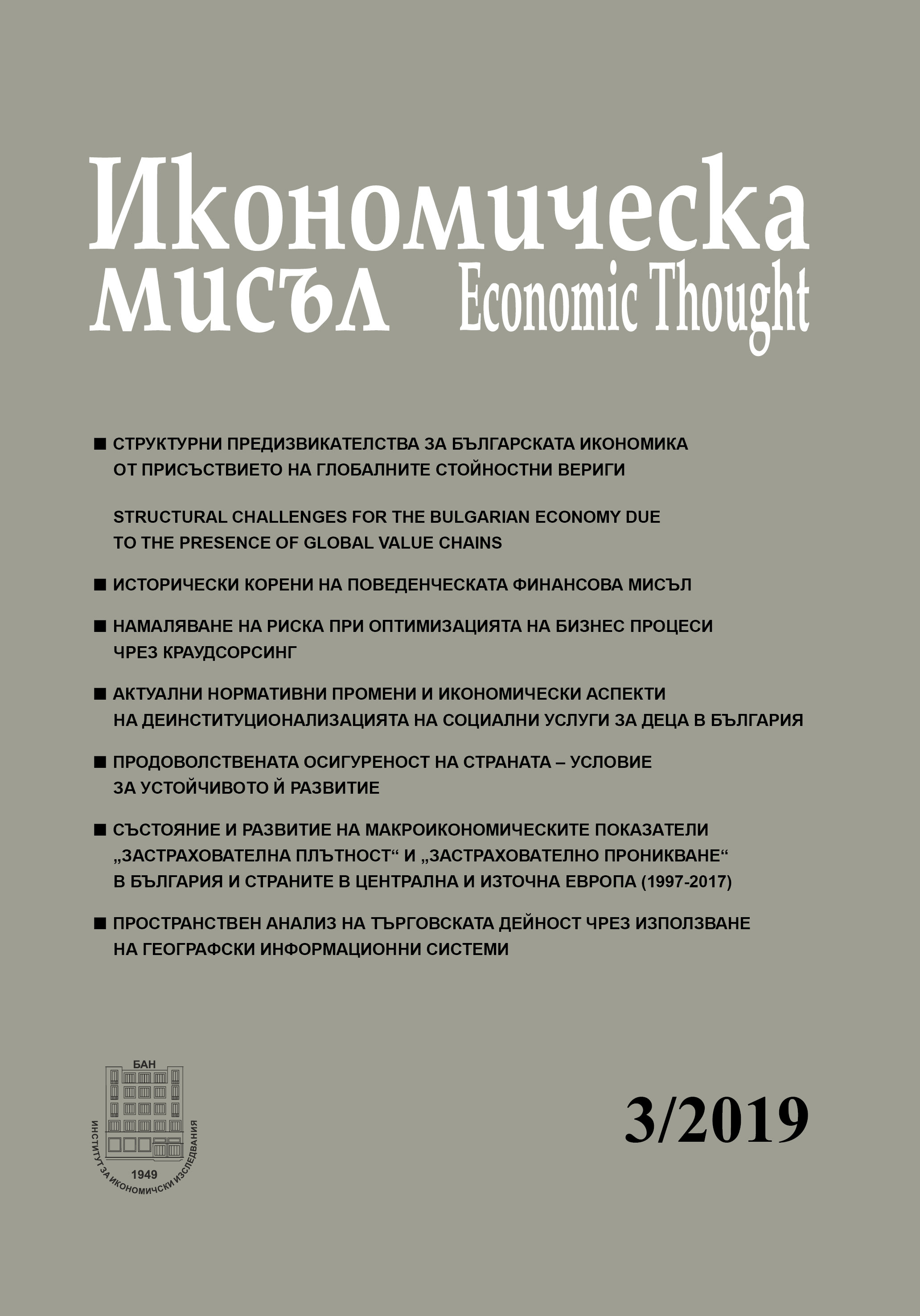Исторически корени на поведенческата финансова мисъл
Historical roots of behavioural financial thought
Author(s): Bozhidar NedevSubject(s): Economy, National Economy
Published by: Институт за икономически изследвания при Българска академия на науките
Keywords: behavioural finance; irrational behavior; economic theories; psychology; utility
Summary/Abstract: The rise of the first implicit ideas in the field of behavioural finance is examined from a historical point of view, taking into consideration the evolution of economic theories. The first documented manifestation of irrational behaviour on a market level, which took place during the 17th century, is presented. The foundations of Daniel Bernoulli’s Decision theory from the 18th century are systemized in regard to the implementation of behavioural aspects and the reference to the contemporary Prospect theory. The classical and early neoclassical schools of economic thought, where the idea that economic decisions are also being influenced by emotional stimulus can be found in the works of economists like Hermann Heinrich Gossen, Adam Smith, Jeremy Bentham, William Stanley Jevons, Léon Walras and Edgeworth, are examined. The neoclassical school of economics, where the representatives of marginalism limit the idea of the complexity of human nature, is also analysed. In conclusion, a short description of some of the contemporary aspects of the science of behavioural finance is made.
Journal: Икономическа мисъл
- Issue Year: 2019
- Issue No: 3
- Page Range: 33-50
- Page Count: 18
- Language: Bulgarian

